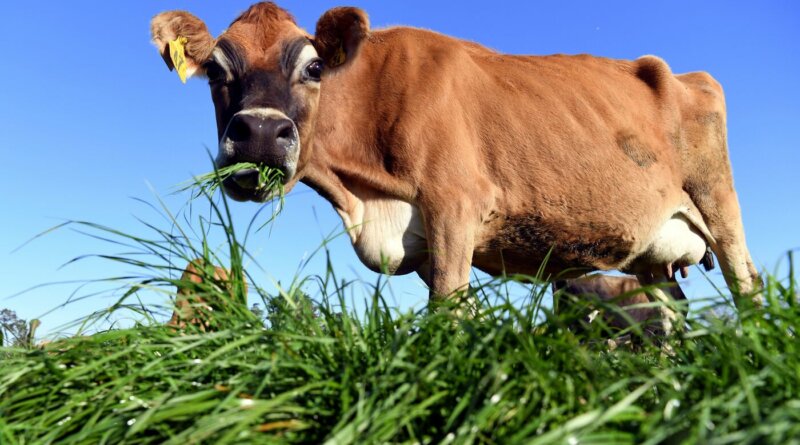New Zealand announces world-first plan to tax cow and sheep burps : NPR

Past measures to tax farmers have met strong resistance, but New Zealand’s climate change minister thinks it is a good start
William West/AFP via Getty Images
hide caption
toggle caption
William West/AFP via Getty Images

Past measures to tax farmers have met strong resistance, but New Zealand’s climate change minister thinks it is a good start
William West/AFP via Getty Images
You’ve heard of the carbon footprint. Now there is a development on the carbon hoofprint.
New Zealand has announced a plan to tax livestock burps in an effort to curb the country’s gas emissions.
Methane emissions from animals is a well-known issue. Cows alone are responsible for about 40% of those planet-warming gases globally — mainly through their burps.
UC Davis scientist Ermias Kebreab is something of a cow whisperer who has spent two decades studying the greenhouse gas contributions of hoofed animals.
“If you tell me how much your animal is consuming, I can tell you pretty closely to the actual emissions using mathematical models,” he said.
“Most of the gas is formed in their stomach, so in their guts, particularly in the first chamber. And so they belch it out.”
He and other scientists have developed special diets and genetic predictions that could help reduce the methane formed in cow stomachs.
Now, New Zealand could become the first country to tax its way to fewer “four-legged” emissions.
There are seven times more cows and sheep than people in New Zealand. And on Wednesday, the country’s government released a draft plan to have farmers pay for their animals’ emissions, starting in 2025.
The recommendations stem from He Waka Eke Noa — a collaboration between the government and the primary sector.
The group recommended the government “introduce a farm-level split-gas levy on agricultural emissions with built-in incentives to reduce emissions and sequester carbon.”
Past measures to tax farmers have met strong resistance, but New Zealand’s climate change minister James Shaw thinks it is a good start.
“There is no question that we need to cut the amount of methane we are putting into the atmosphere, and an effective emissions pricing system for agriculture will play a key part in how we achieve that,” Reuters reported Shaw saying.
And Kebreab told the TED Radio Hour last month that tackling livestock emissions could be a game changer for slowing climate change.
“The reason we want to push on reduction of methane emissions now is because we still see the results fairly quickly — in the next 10 years or so,” he said.
A final decision on New Zealand’s plan is expected by the end of the year.





